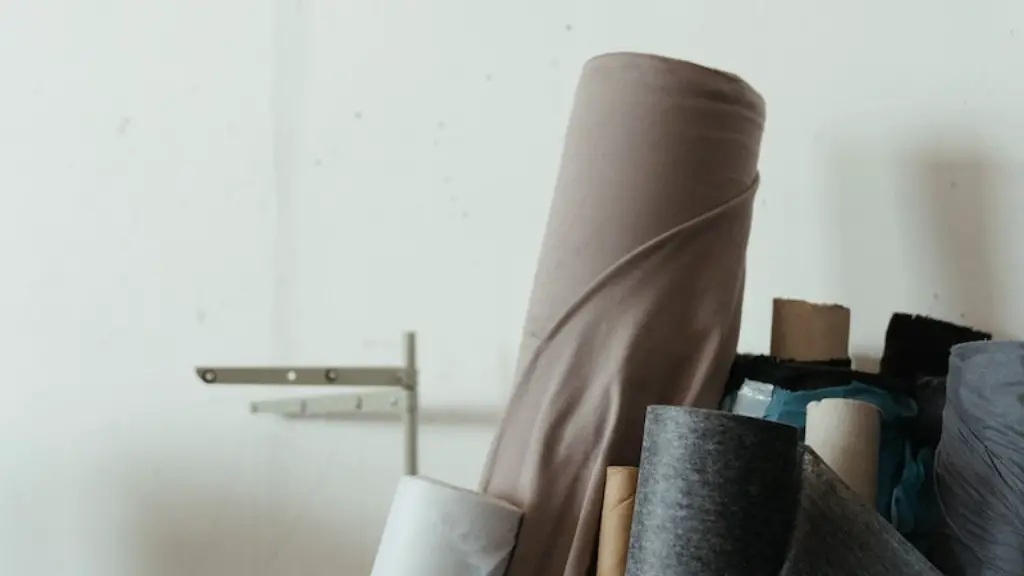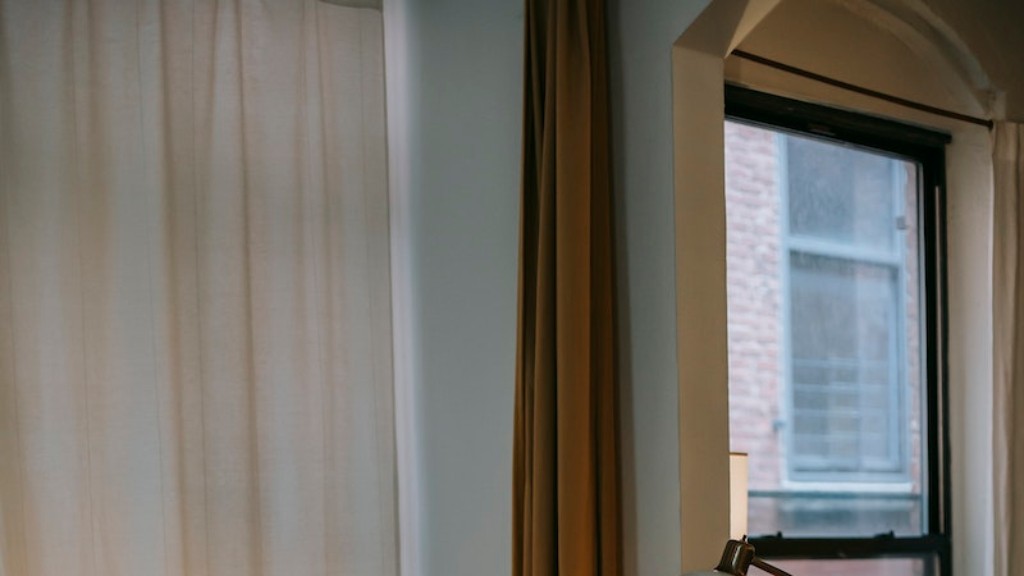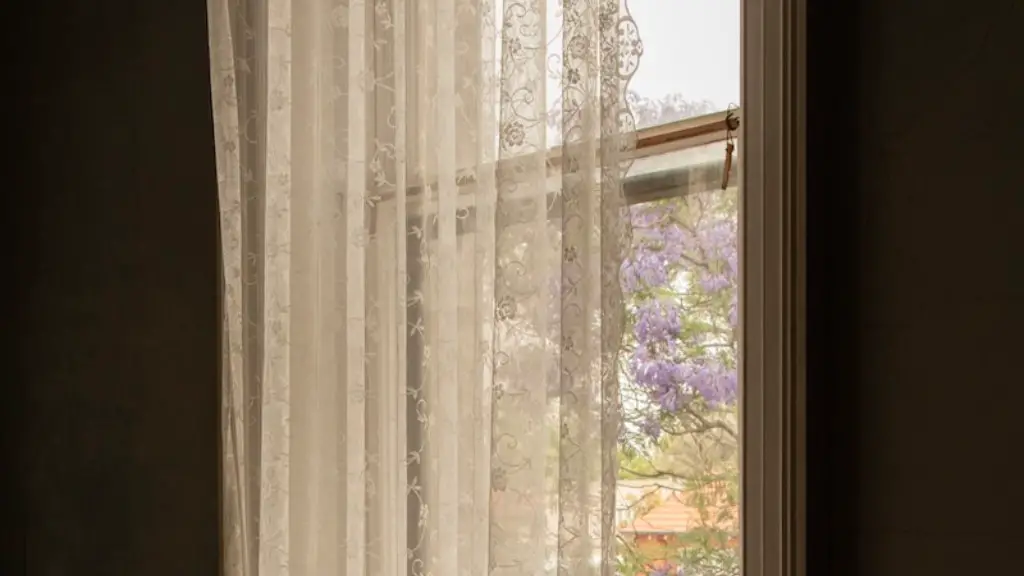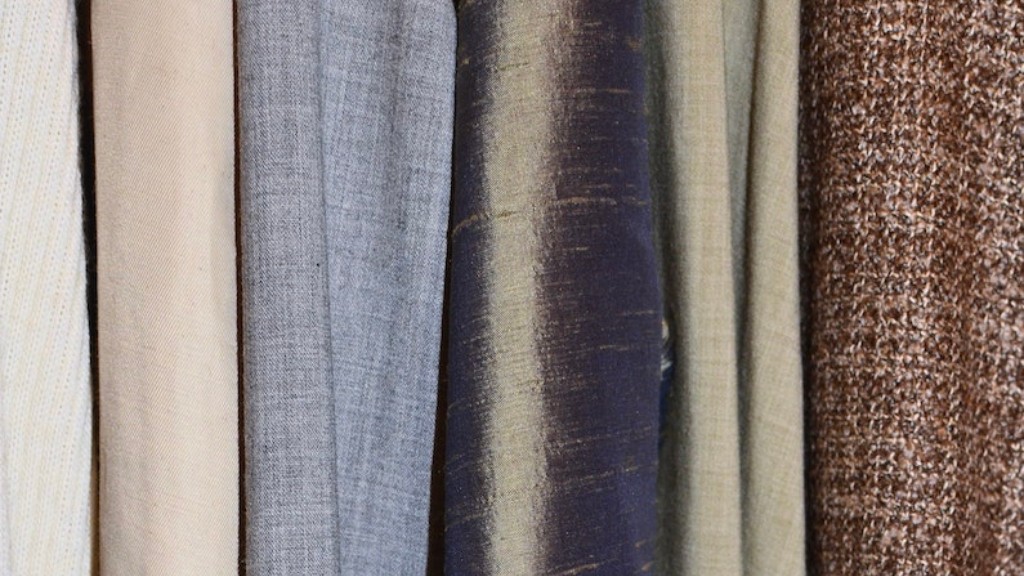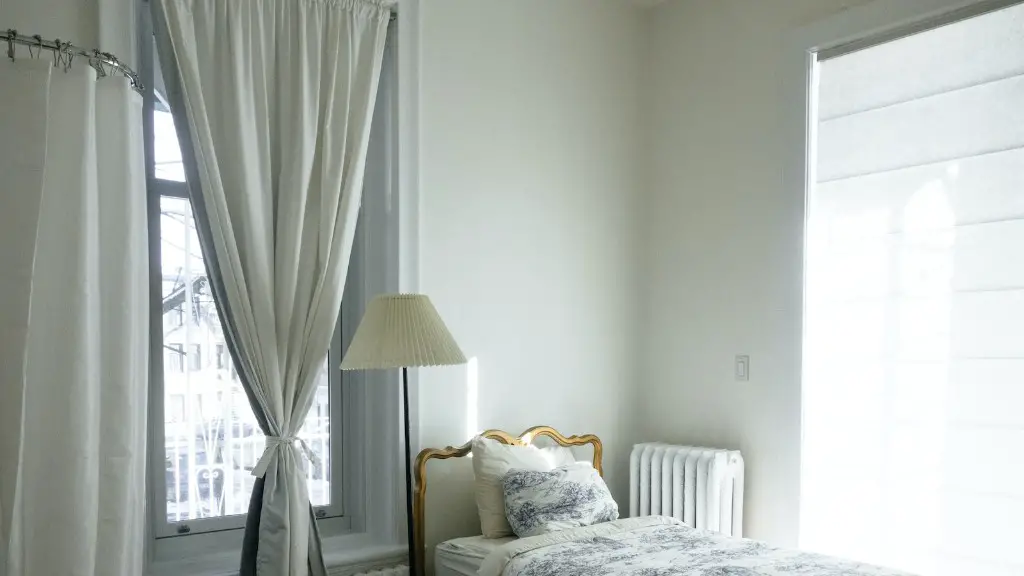Are blackout curtains soundproof? It’s a common question, especially for city dwellers. The answer is both yes and no. Blackout curtains will muffle outside noise but they won’t completely eliminate it. If you’re looking for complete silence, you’ll need to look into other options like noise-cancelling headphones or earplugs.
Blackout curtains are not soundproof, but they can help to reduce noise.
What kind of curtains are soundproof?
If you are looking for soundproof curtains for your home office, the best options are curtains made out of burlap or another thick fabric. Basketweave textured curtains are also a good option if you are looking for a more tasteful option.
Soundproof curtains are effective at reducing noise and reverberations in a room. They will not provide complete isolation from outside noise, but they will significantly reduce the amount of noise in the room. If you want to further reduce noise, you can consider installing soundproof windows.
How much sound do curtains block
Soundproof curtains are a great way to reduce noise levels in your home. They can block out between 60%-80% of outside noise, which can make a big difference in your overall comfort level. If you are looking for a way to reduce noise levels in your home, soundproof curtains are a great option to consider.
1. Blackout curtains can completely block out light, making it ideal for bedrooms where you want to sleep in darkness.
2. Blackout curtains can help save energy by blocking out heat and cold from the sun.
3. Blackout curtains can create a more peaceful and quiet environment, perfect for bedrooms or home offices.
4. Blackout curtains can provide privacy by preventing people from seeing into your home.
How can I soundproof my room cheaply?
There are a few things you can do to soundproof a room cheaply. One is to use bookshelves and furniture as a wall divider. This will help to absorb sound and make it less echo-y in the room. Another option is to use wooden shutters. These can be left open during the day to let in light and then closed at night to help muffle sound. Sound dampening curtains are also a good option, as they can be hung over windows and doors to help reduce noise. Soft furnishings such as rugs and carpets can also help to absorb sound. Finally, you can fix loose floorboards and use acoustic caulk to seal up any gaps or cracks that might be letting in noise.
There are a few things you can do to reduce street noise in your bedroom:
1. Use heavy curtains to block out sound.
2. Move away from the external wall if possible.
3. Use balconies as a buffer space between you and the noise.
4. Partitions can also help to block out noise.
5. Walls with textured surfaces can help to absorb sound.
6. Carpets can also help to reduce noise.
7. Fixing squeaky windows can also help to reduce noise.
8. A bed with an enclosure can also help to reduce noise.
How do I stop traffic noise on my windows?
There are four ways to soundproof your windows:
1. Sealing any gaps around the window will reduce the amount of exterior noise that enters your home.
2. Creating a barrier before the window will help to absorb any sound that does enter.
3. Acoustic curtains can be hung around the window to further reduce the amount of sound that comes in.
4. Double and triple glazed window panes create an extra barrier against sound, making them the most effective option for soundproofing.
If you are looking for a way to reduce noise from outside, the best approach is to cover the window with the heaviest, thickest material possible. Curtains are generally more effective than blinds as a soundproofing solution.
Can curtains make room quieter
Soundproofing curtains are great for blocking out unwanted noise, but there are a few things to keep in mind to ensure they are effective. First, curtains must be made of heavy, dense materials in order to be effective at blocking sound. Secondly, the curtains should be hung as close to the ceiling as possible and extend all the way down to the floor to create the most barrier possible. Finally, be sure to seal any gaps around the edges of the curtains with tape or another sealant to further prevent sound from coming through. By following these tips, you can be sure that your soundproofing curtains will be effective at blocking out unwanted noise.
There are a few different types of soundproofing materials that can be used in order to reduce noise levels in a given area. Soundproofing foam is one type of material that can be sprayed from a can and added as insulation to walls in order to help reduce noise. Another type of material that can be used is mass loaded vinyl, which is a heavy material that can be placed in various locations in order to reduce noise. Acoustic caulk and acoustic window inserts are also effective soundproofing materials that can be used in order to reduce noise levels.
What are the disadvantages of blackout curtains?
If you’re looking for a way to block out light and create a dark environment, blackout curtains may be a good option. However, they can take up more space than blackout blinds and can be more difficult to clean.
Blackout curtains are a great way to increase privacy and reduce outside noise. They are available in a range of colors and sizes and can be a great addition to any home.
What is the difference between blackout and blackout curtains
What sets blackout curtains apart from other types of curtains is that they are 100% blockout curtains. That means that they completely block out all light. Other types of curtains, such as blockout curtains, only offer about 99% blockout, so blackout curtains are the superior choice if you want to completely block out all light.
Cotton is an excellent acoustic material that achieves multiple effects. Bamboo soundproofing is another effective sound absorption option because it’s a soft type of wood. Coconut fibers are also effective in absorbing sound. Echo Absorber™ acoustic cotton and Quiet Batt™ soundproofing insulation are both excellent choices for soundproofing your home.
There are a few things you can do to help soundproof your walls, including using special paints, drywall, and insulation. Adding mass to your walls (or decoupling them so they’re not attached to your neighbor’s walls) will help even more.
It’s possible to completely soundproof a room, but you’ll need to address the source of the sound, its entry point, and its reflection points. Depending on these factors, you may use a sound booth, acoustic panels, acoustic foam, curtains, and/or window treatments to block incoming noise.
How do I block street noise at night
If you want to reduce or block street noise, there are a few things you can do. To seal sound leaks around exterior windows, you can use weatherstripping or caulk. You can also reinforce your windows with soundproof curtains. To further reduce noise, you can double up your doors. Finally, you can build sound barriers or soundproof your exterior walls. By taking these steps, you will be able to reduce or block street noise.
There are a few things you can do to help you sleep better at night if you’re struggling with noise. One is to try using white noise to help block out other sounds. You can also use earplugs if needed. Additionally, make sure your bedroom is set up in a way that promotes relaxation and peace. This may mean rearranging your furniture or hanging thick curtains to help block out light and noise.
Final Words
No, blackout curtains are not soundproof.
There is no clear consensus on whether blackout curtains are soundproof. Some people say that they can help to reduce noise, while others find that they do not make a significant difference. Ultimately, it is up to the individual to decide whether blackout curtains are effective in reducing noise levels.
